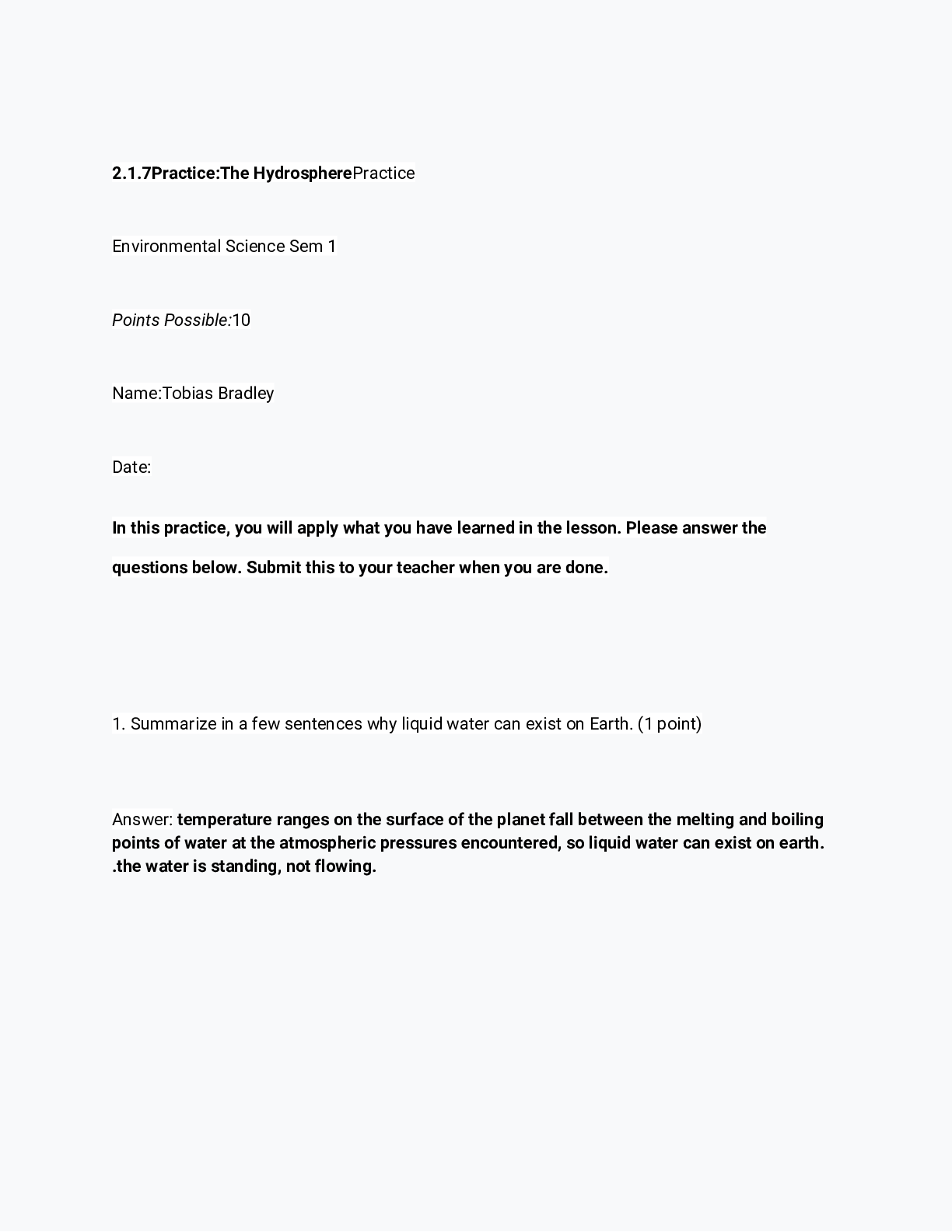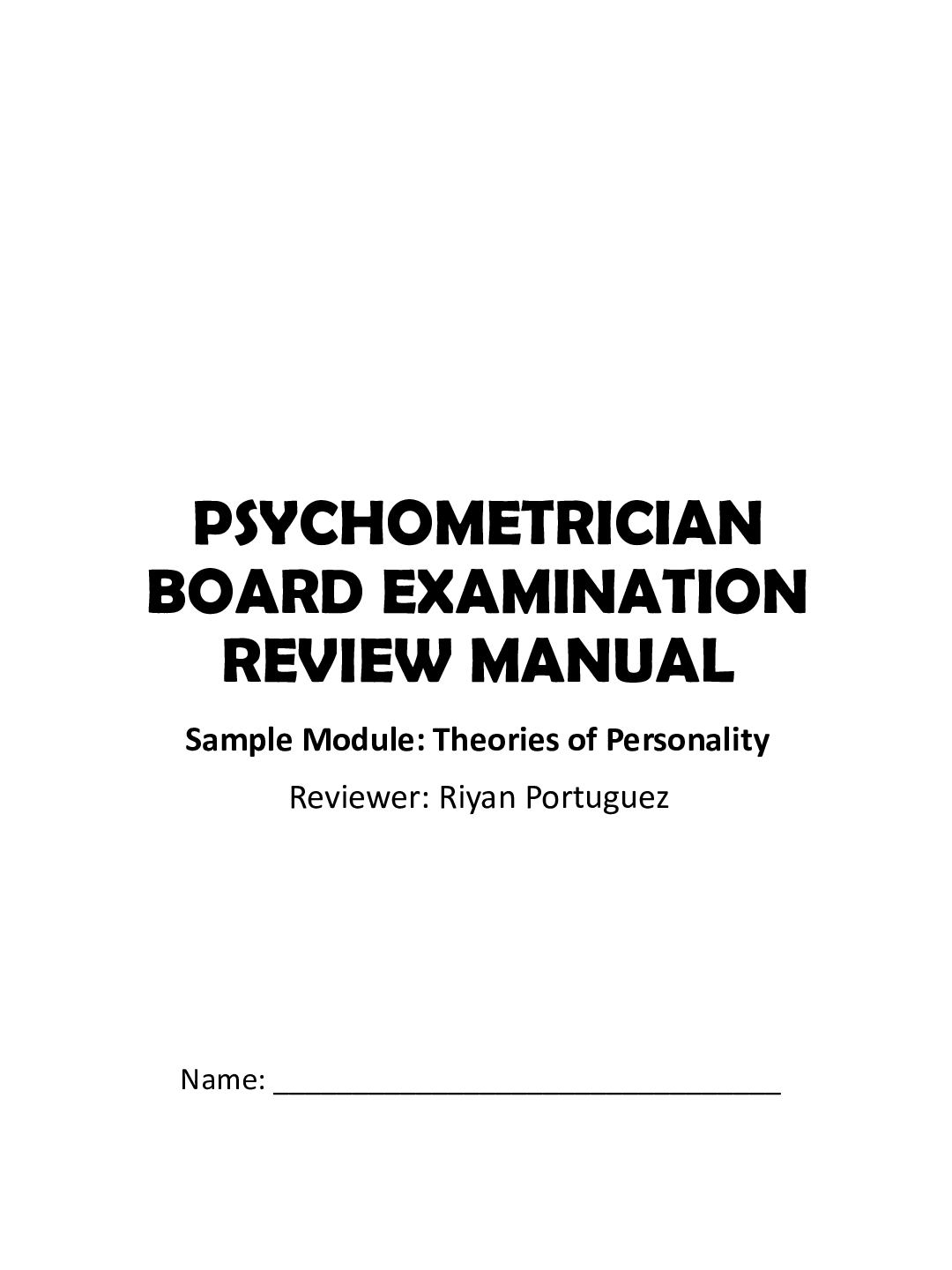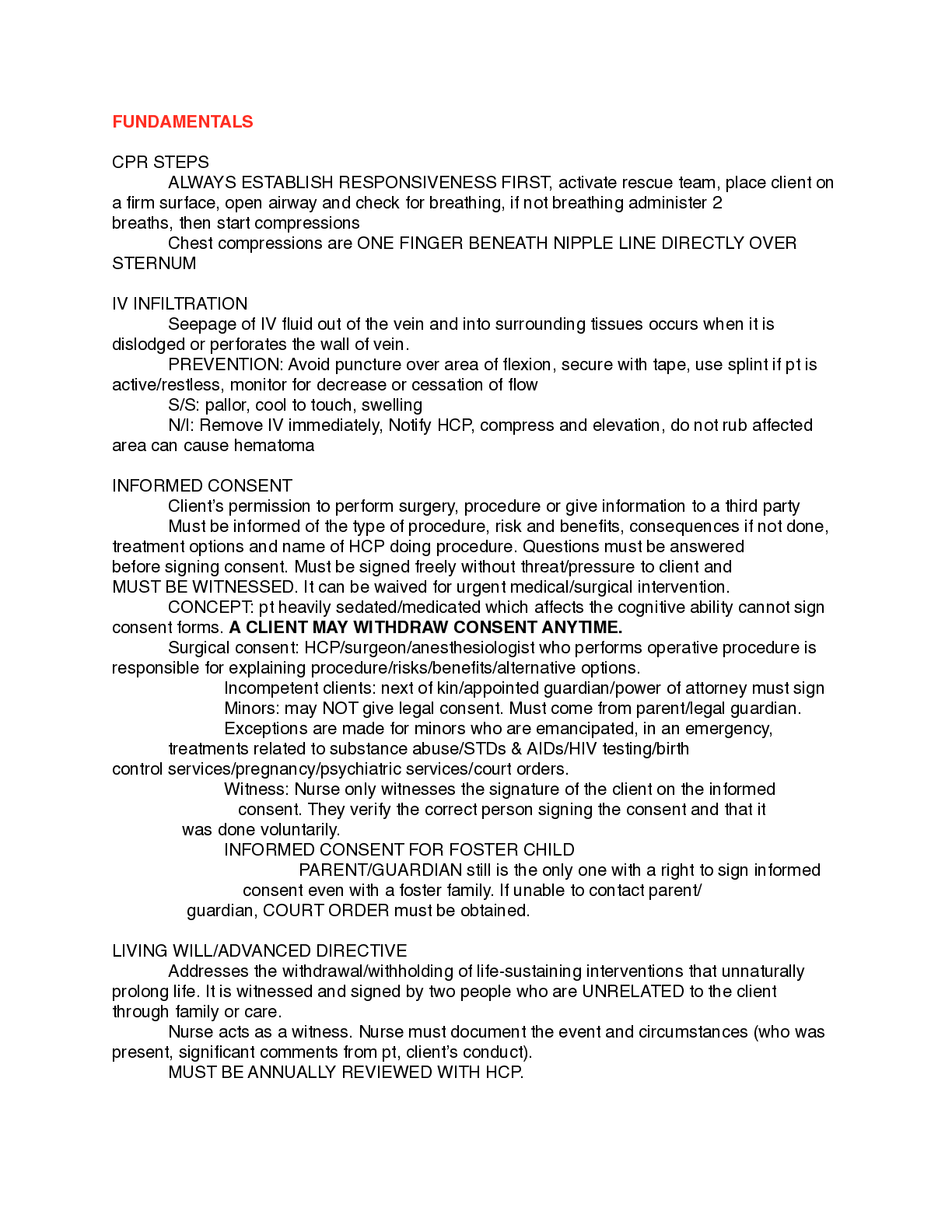Biology > STUDY GUIDE > 03.07 Dilations and Similarity Discussion-Based Assessment - FLVS BIO 4777 (All)
03.07 Dilations and Similarity Discussion-Based Assessment - FLVS BIO 4777
Document Content and Description Below
DBA Study Guide – The following are the essential questions to help you prepare for the DBA . These are NOT the actual DBA questions. These questions will help you prepare and study for the DBA an... d the Exam 3.01 ESSENTIAL QUESTIONS How do you dilate a figure on the coordinate plane? “To dilate something in the coordinate plane, multiply each coordinate by the scale factor. This is called mapping”. How are dilation's and functions related? “Dilation in general, is a type of transformation that produces a same image like the original image but with different size. With respect to functions, when a function/graph is stretched away from an axis or shifted towards an axis, then it is called dilated. Though the function retains the same shape even when it is multiplied by any number. During this process, the functions dilate for sure, but at the same time keep its original shape, (x, y)—>(kx, ky)”. How do you determine the scale factor of dilation? “To find the scale factor for a dilation, we find the center point of dilation and measure the distance from this center point to a point on the pre-image and also the distance from the center point to a point on the image. The ratio of these distances gives us the scale factor”. How are segments within a pre-image and an image of a figure related after the figure is dilated? “After a dilation, the pre-image and image have the same shape but not the same size. Sides: In a dilation, the sides of the pre-image and the corresponding sides of the image are proportional. Some of the properties preserved under a dilation from the pre-image to the image are angle measures which remain the same, the parallel lines remain parallel, the points remain on the same lines and the orientation remains the same, the distance changes though, A'B' ---- AB”. 3.02 ESSENTIAL QUESTIONS How do you determine if polygons are similar? “Two or more polygons can be similar if their corresponding angles are congruent and the corresponding sides have a constant ratio (in other words, if they are proportional)”.. What relationships are formed by correspon [Show More]
Last updated: 2 years ago
Preview 1 out of 3 pages

Buy this document to get the full access instantly
Instant Download Access after purchase
Buy NowInstant download
We Accept:

Reviews( 0 )
$5.00
Can't find what you want? Try our AI powered Search
Document information
Connected school, study & course
About the document
Uploaded On
Dec 08, 2022
Number of pages
3
Written in
Additional information
This document has been written for:
Uploaded
Dec 08, 2022
Downloads
0
Views
85






.png)

.png)





